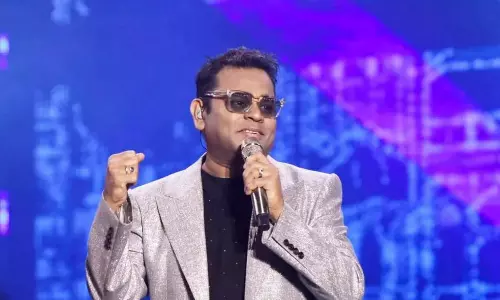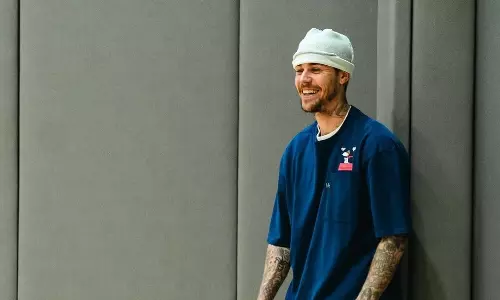Palghat K.L. Sreeram says music is his mentor
Veteran Palghat K.L. Sreeram narrates his musical journey with film songs;

The song Chaiyya Chaiyya from Dil Se...(1998) is credited with attracting international attention on Indian film music scene. While singer Sukhwinder Singh rendered it in Hindi, it was Palghat K.L. Sreeram whose voice gave life to the Tamil version, Thaiyya Thaiyya.
But Sreeram, who has many film songs in Tamil, Telugu and Malayalam, is much more than just a singer. He is a complete musician. He owns an audio label Swararnavam, has scored music for two Malayalam films Mazhamegha Pravukal and Melvilasam Seriyanu has been a teacher at A.R. Rahman’s KM Conservatory and has judged a few TV reality shows. Associated with many fusion bands, he can play the mridangam, flute and keyboard, and in fact, had made his debut in the film industry as a flutist.
“I was aware that it is difficult to survive in Kerala as a full-time musician. So I moved to Chennai in 1995 soon after marriage as there was a demand for flutists here. I had learnt flute by myself, so it came in handy,” he says. Since then, Sreeram has come a long way, working with many singers and different music directors including Ilaiyaraaja, Vidhya Sagar, G.V. Prakash Kumar and A.R. Rahman.
It’s interesting how he came in contact with Rahman. “I had accompanied my wife (Baby Sreeram, who has a doctorate in music) to Rahman’s studio for an audition and he happened to see me training her and asked me if I am interested in singing. That’s how I got the song Thiruppachi Aruavala from Taj Mahal (Tamil),” he says.
Sreeram now enjoys being involved with fusion music and bands like Heart Beat and those of Shivamani and Ranjit Barot. He has been a part of over 100 fusion concerts in India and abroad and the latest was with Carola Grey’s band Noisy Mama in Germany. “The best thing about fusion music is you get to infuse the flavour of the place into music. Also, I get to play instruments and sing at the same time. But to do good fusion, one has to be strong with the basics. I want to collaborate with more contemporary musicians and experiment more with fusing the western and the Indian classical,” he says.
But why has he not been in the limelight besides all these achievements? “I would call it commercial limelight, which comes with its own demands. Even the television awards are given expecting a favour in return. Particularly, I hate miming on stage while the actual song plays in the background. Rather, I would like to stay close to music instruments and closer to music,” he says.
Sreeram is not a great admirer of reality shows, though he has judged some of them. “The bright side of such shows is that they give opportunities to aspirants, but on the downside, they don’t care about those who can’t take failure easily. It’s a big mistake that way,” he says.



